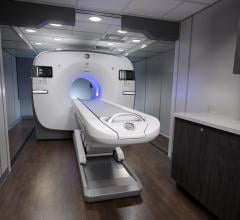
September 5, 2018 — Eli Lilly and Co. and Avid Radiopharmaceuticals Inc. announced a Phase 3 study of positron emission tomography (PET) imaging agent flortaucipir F-18 met its two primary endpoints, defined as predicting brain tau pathology and predicting Alzheimer's disease diagnosis.
The study, referred to as A16, enrolled a total of 156 end-of-life patients with dementia, mild cognitive impairment or normal cognition who underwent flortaucipir PET imaging. Subsequently, 67 of these patients were evaluated post-mortem. The study met pre-specified endpoints, with flortaucipir demonstrating statistically significant sensitivity and specificity for detecting tau pathology of Braak Stage V/VI, a pathological staging scale for tau neurofibrillary tangles. Flortaucipir also demonstrated statistically significant sensitivity and specificity for detecting a high level of total Alzheimer's disease neuropathologic change (combining both tau and amyloid plaque densities), using the National Institute on Aging and Alzheimer's Association (NIA-AA) neuropathology criteria.
Eli Lilly and Co. plans to disclose more detailed study results at the 2018 Clinical Trials on Alzheimer's Disease (CTAD) meeting, Oct. 24-27 in Barcelona, Spain, and will discuss these findings and potential next steps with the U.S. Food and Drug Administration (FDA) in the near future.
For more information: www.lilly.com


 July 30, 2024
July 30, 2024 








